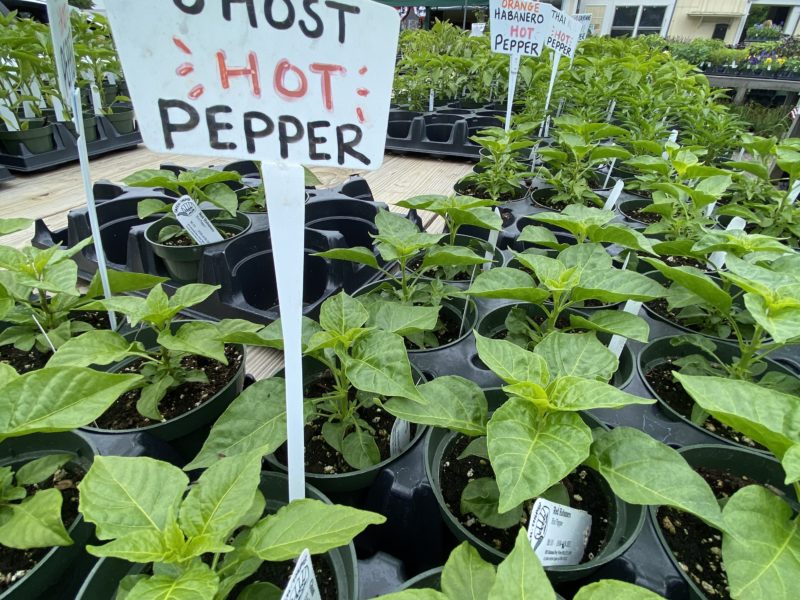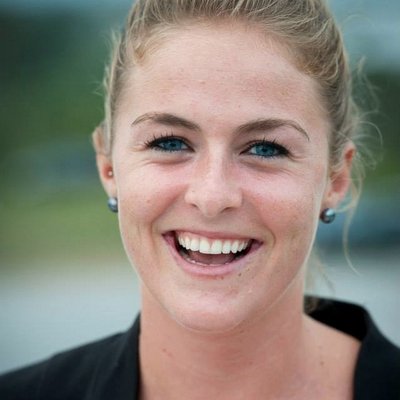

Fueled by panic stemming from last year’s grocery store shortages, residents across the South Fork are bolstering their gardens for the 2021 season.
One estate called up with a 600 kale plant order. Another customer tried to purchase 48 basil plants. Yet another attempted to spring for 100 tomato plants.
Although many of these orders were remedied by staff explaining that 100 tomato plants would keep a family of four in tomato sauce for years, greenhouses across the East End are working double time to keep up with this year’s outsized demand.
Many anticipated skyrocketing interest in 2021 after so-called “Survival Gardens” boomed last year, but greenhouses are still selling out earlier than ever before.
“We had anticipated being here until at least the 10th of June,” said Adam Halsey of Halsey Farm and Nursery. Mr. Halsey closed his nursery on Memorial Day after selling out of nearly all its seedlings. “It was a busy season, a very successful season. We decided we would close and give our employees a bit of a break before we open the farm stand.”
Select seedlings, including peppers, herbs and tomatoes, will still be available outside the farm stand on a self-service basis until the stand officially opens on Wednesday, June 16.
South of the highway, the Green Thumb’s nursery is also on overdrive, greenhouse manager Jesse Wellen said. He estimates that they are transplanting around 300 basil seedlings a week; to date, they’ve already sold over 2,000 basil plants.
“I think people are very grateful that they can find organic plants that are grown behind the farm stand,” Mr. Wellen said. “With the pandemic and the whole ‘Victory Garden’ movement, people were forced to face the idea that food security is a real thing. We are living in a well-to-do area, but the supermarkets were all sold out. That freaked a lot of people out.”
In 2020, the Green Thumb’s seedling sales increased 52 percent, with some varieties like cucumbers doubling their numbers from 2019. Other fan favorites were cilantro, squash, parsley and eggplant.
With his brother Ray Wellen describing him as a “madman in the greenhouse,” Mr. Wellen is excited that people are trying gardening out and believes that this year customers are investing more “energy and love” into the process.
So far, the Green Thumb has been able to keep up with the outsized demand, and even offering trendier seedlings like shishito and habanada peppers.
Many nurseries are also forced to play the role of educator. The East End of Long Island has a late frost date as compared to other locations in New York — a belated May 15. While many year-round folks are used to the later start to gardens, farmers and nurseries alike have been educating newer gardeners about when they can actually plant seedlings in the ground. Spring comes late, if at all on the South Fork.
“The past couple years it seems like people are planting earlier,” Mr. Halsey said. “We try to educate people that there is a risk, but most people think that having something earlier is worth the risk.”
The boom in plants extends past the vegetable garden, with flowers flying off the shelves of nurseries, especially white flowers.
“Prior to COVID, people weren’t buying flowers anymore,” said Jenn Halsey of The Milk Pail. Before 2020, the farm stand mostly sold its signature flowers to landscapers. That all changed when summer residents became year-round ones in 2020.
Not only was there a do-it-yourself spirit following grocery store shortages of 2020, but many summer residents spent spring on the South Fork for the first time.
“They are out here, they want something to look at,” speculated Ms. Halsey, who reports busier-than-normal sales for flowers. Additionally, “COVID woke people up to do things themselves.”
The great seedling sweep of 2021 has also affected garden centers. Most nurseries import their products on a weekly basis and have an easier time keeping up with demand than farms that grow their own seedlings, but COVID-related supply-chain issues are causing a headache for garden centers.
“Trucking has been a nightmare this year,” said Margaret “Midge” Fowler of Fowler’s Garden Center in Southampton. At one point, her son Ricky Fowler hired an Uber truck driver to transport garden stakes that were stuck somewhere in the Midwest. “We can order it and we can be told it is coming but we don’t know when. The truck comes in when the truck comes in.”
Fowler’s Garden Center receives about seven to eight trucks a day of garden products including fertilizer, vegetable seedlings, even seed packets. Fowler’s has been able to keep up with demand for plantings, but sourcing raw materials — especially anything metal — has been difficult because of supply-chain breakdowns. Additionally, a fire at an Espoma plant has made it harder to source fertilizer and mulch.
All of these supply-chain issues are heightened as the demand for plants skyrockets. Sales on fruit trees, houseplants, flowers, herbs and orchids are all up, Ms. Fowler said.
“Everybody wants to be a gardener,” Ms. Fowler said. “In a way, we sell instant happiness here. You can walk in and buy something and walk out with a smile.”
 More Posts from Alexandra Talty
More Posts from Alexandra Talty